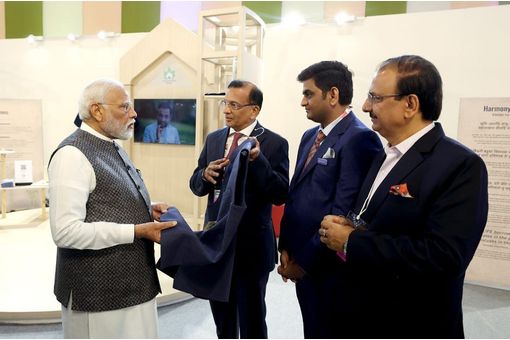40% US online shoppers buy with intent to return: Report

The bracketing trend is especially true for affluent shoppers and those under the age of 30, according to the report 'Making Returns a Competitive Advantage' published by Narvar, an enterprise-grade post-purchase experience platform. Narvar surveyed nearly 700 US consumers who returned an online purchase in the past 12 months to understand people's attitudes towards returns when shopping online.
There are over 75.4 million millennials in the US alone, and they make 54 per cent of their purchases online. As they buy more online, they return more too. Yet, retailers are not meeting expectations, with 48 per cent of millennials saying returns are a hassle. As many as 60 per cent of millennials admit to keeping purchases they dislike because they don't want to deal with the hassle of returning them, which is 18 per cent higher than shoppers over the age of 30, says the report.
Interestingly, high-income shoppers have similar perceptions and behaviours as millennials when it comes to returns. They are also 1.5 times more likely than the average consumer to return an online purchase. This signals a new opportunity for retailers to differentiate themselves by addressing consumers' desire for convenience, communication and flexibility in the post-purchase experience.
"An online return is a critical moment in the customer journey. Retailers have an opportunity to impress and delight customers, especially high-value segments like millennials and affluent shoppers. These are digital natives who treat returns as a natural part of the buying process and have come to expect convenience and transparent communication," said Amit Sharma, CEO of Narvar. "If retailers can meet these high expectations, they can use returns to improve customer satisfaction, inspire loyalty and fuel new revenue streams."
"As the study shows, most shoppers are frequently returning online purchases, while remaining loyal to brands if they have a positive experience. Retailers who want to remain competitive will find ways to reduce friction in the returns process, whether that's communicating more updates, providing more transparency, or offering free return shipping," said Sucharita Mulpuru, a retail industry analyst who collaborated with Narvar on the study.
Women, those under the age of 30 and high-income shoppers are most likely to 'bracket'. About 44 per cent of women surveyed have done this in the past year, compared to 30 per cent of men, while 45 per cent of shoppers aged 18-29 have done this in the past year, compared to 38 per cent of shoppers over the age of 30. Close to 48 per cent of high-income shoppers (those who make more than $100,000/year) have done this in the past year, compared to 31 per cent of the rest of the population.
The survey also found that consumers like returning online purchases in stores, and retailers who make this process easier earn a competitive advantage. Shoppers like to return items to stores because they get immediate credit back for their return and they can shop for other items while they are in the store. This is especially true for high-income consumers and shoppers under the age of 30. Nearly half (47 per cent) shoppers say that it is easier to return on online purchase to a store.
Millennials are even more likely to go in-store to return an online purchase. About 55 per cent say it is easier to return an online purchase in-store because they like to shop for other items on the same trip (38 per cent) or get an immediate credit (40 per cent).
Amazon's return process is complex, requiring shoppers to take more steps such as contacting the retailer for return authorization. However, the ecommerce giant also provides greater transparency into the process. As a result, Amazon shoppers rate their overall satisfaction higher. Shoppers who returned items to Amazon report higher satisfaction; 75 per cent gave the experience a 4 or 5 on a 5 point scale, compared to 70 per cent of overall survey respondents. This is in spite of the fact that more shoppers reported facing hurdles with Amazon returns, 41 per cent contact the retailer to get a return authorisation (compared to 28 per cent overall); 25 per cent need to find a different box or envelope (compared to 16 per cent overall), adds the report. (KD)
Fibre2Fashion News Desk – India
































-Ltd..jpg?tr=w-120,h-60,c-at_max,cm-pad_resize,bg-ffffff)





.jpg?tr=w-120,h-60,c-at_max,cm-pad_resize,bg-ffffff)
.jpg?tr=w-120,h-60,c-at_max,cm-pad_resize,bg-ffffff)






